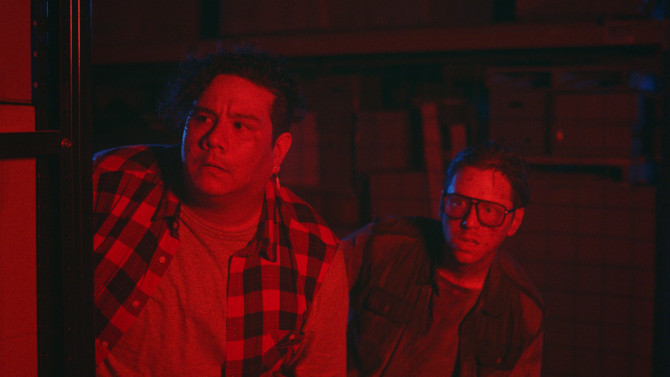
Calling All Demons
Reveling somewhere between cheesy 80s horror flick and Abbott and Costello buddy comedy slapstick, the 2017 short film We Summoned a Demon, written and directed by Chris McInroy, is six minutes of pure horror comedy goodness. Following a pair of less than cool guys, Kirk (Kirk C. Johnson) and Carlos (Carlos Larotta), they are really pulling at straws. . . as they’ve decided to attempt a satanic ritual to make the former a slick talking pick-up artist (of course, it’s all about getting a girl). After a ‘slight’ blood mishap, they inadvertently summon a glowing yellow eyed demon with horns that could qualify as overcompensating (John Orr).
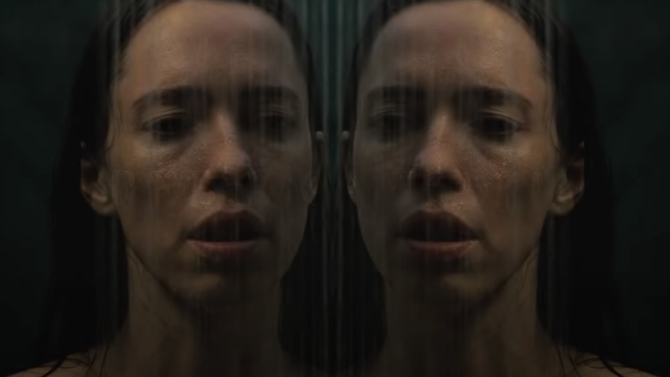
Home Is Where the Dark Is
Almost as if Sigmund Freud, Edgar Allan Poe and Alfred Hitchcock got together to make a movie (Roman Polanski could probably be thrown into the group for good measure), 2020's The Night House lives in the realm of the double, the uncanny, as well as the horror found in grief and the chasm of nothingness it can bring with it. Written by Ben Collins and Luke Piotrowski, and directed by David Bruckner, the story follows teacher Beth (Rebecca Hall), the audience joining her immediately after the suicide of her husband, Owen (Evan Jonigkeit). Living in a bluff-top lake house that he himself built (the reflective water perhaps the first indication of the double), she might as well be out at sea. . . though she might not want that, as Owen killed himself on the water. And, when the darkness of night comes, Beth’s world feels like an encased glass tomb.
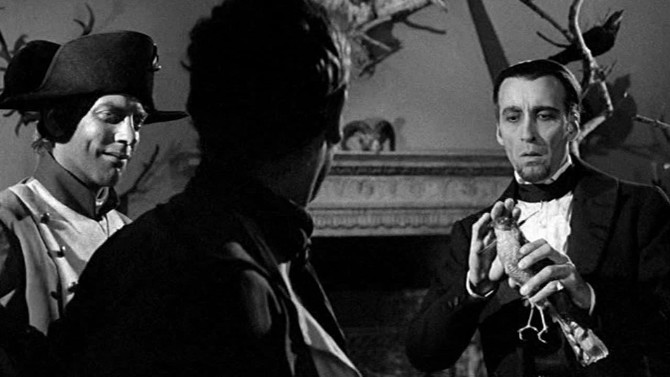
Mi Castle, Su Castle
Put this piece of advice in your memory banks – if you ever get invited to perform at a location called The Castle of the Living Dead, it might be best to decline the offer. A 1964 low budget horror film co-written and directed by first timer Warren Kiefer, it has stood the test of time thanks to two memorable performers and its real life Italian castle setting. The story of a traveling acting troupe, all is not right. . . for leader Bruno (Jacques Stany) has drawn the ire of harlequin performer Dart – who desperately wants his money up front. Taking umbrage with everything he does, a fight ensues, with bystander and former military officer Eric (Philippe Leroy) thankfully stepping in to stop the close to deadly tussle. With Eric deciding to take over the role of the harlequin. . . though not before Dart casts a deadly threat at Bruno and the troupe, this ominous departure does not sit well with the other members, ingenue Laura (Gaia Germani) and adventurous little person Nick (Antonio De Martino).
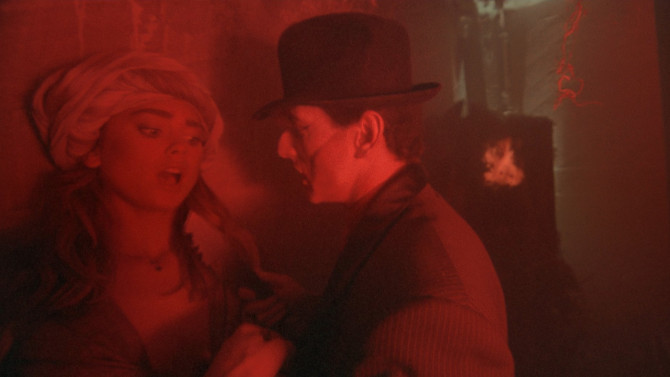
Missed the Bloody Cut: 2021 (Part 3)
Part 3 of my Missed the Bloody Cut horror selections, here are some more horror movies that did not meet my strict criteria (a rating of 7.0 or higher). . . but are still entertaining films (horror fanatics may enjoy) that do not deserve to be left behind like an alien who needs to phone home – and that they are definitely worth a watch (just maybe not several re-watches).
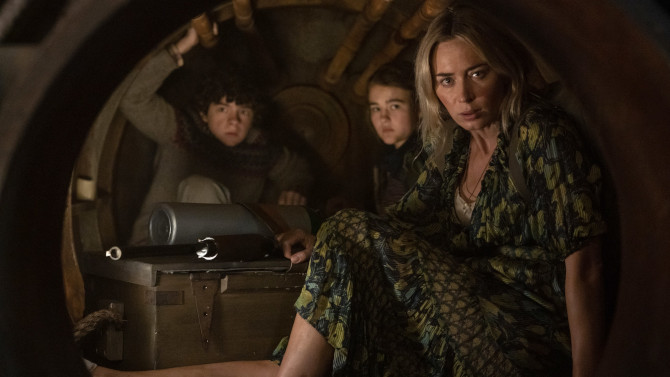
Beyond the See
It’s not easy for kids to grow up – especially in an alien apocalypse. . . after all, what are they to do without Instagram and TikTok. All kidding aside, 2020's A Quiet Place Part II turns the focus on the children, to great effect. Once again written (this time on his own) and directed by John Krasinski, he makes the smart decision to open with a flashback that shows day one of the alien invasion. . . an adrenaline pumping action sequence featuring a lengthy one take car scene, both chaos and quiet hiding, as well as introducing us to a new character from the Abbott’s community, Emmett (Cillian Murphy).
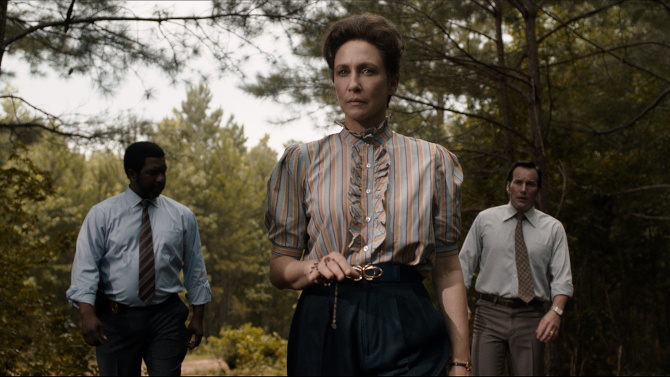
Conjuring Up a Threequel
Bookending the film with what amounts to two climactic sequences, The Conjuring: The Devil Made Me Do It (also known as The Conjuring 3), released this 2021, opens with what very well could have been the ending of a previous film. . . this moment becoming the genesis to push the story forward. For the first time not directed by James Wan (though he co-writes and produces), Michael Chaves takes up the mantle – doing a pretty seamless job. Expect the same intriguing over the head angles, spectral pov shots, long location tracking shots, and spooky camera pans. . . though it is definitely not as flashy as Wan, it does the trick.
